HOPE, an educational and health NGO in Pakistan , organized a Training for trainers program with the collaboration of USAID and MCHIP for the proper usage of 7.1% cholorohexidine for prevention of
umbilical cord infections. The district selected for this training was Sanghar and the venue was HOPE’s Office, A-10, Royal Society, Main Nawabshah Road. This activity was managed by Mr Irfan Qureshi and Mr Sohail Arain, facilitated by Dr Ali Muhammad Junejo, Dr Mir Muhammad Dahri & Dr Zubairuddin Qureshi.
This participatory training using discussion, demonstration, hands on practice, questions and answers, observation and role play – was a continuation of many training sessions managed by HOPE, an educational and health NGO in Pakistan , with support from USAID/MCHIP.
Training started with recitation of verses of the Holy Quran by Dr. Mir Muhammad Dahri followed by Dr. Zubairuddin Qureshi’s welcome remarks & Agenda of the Training program of 7.1% Chlorhexidine Digluconate for prevention of Umbilical Cord Infections.
The objective was to build skilled birth attendant (SBAs) and lady health worker (LHWs) capacity to educate mothers on appropriate cord care and to build skilled birth attendant and lady health worker capacity to teach pregnant women proper procedure of Chlorhexidine application on the umbilical cords stump.
The umbilical is a dangerous entry point for infection, which can easily pass through the cord into the baby`s body and lead to sepsis and death. Infection in the leading cause of newborn deaths. The baby can be infected during the birth process by an unclean umbilical cord or skin pustules. Infection can spread fast and affect the whole baby`s body leading quickly to death. This generalized infection is called sepsis. Ensuring optimal cord care at birth and in the first week of life (including use of Chlorhexidine), especially in settings with poor hygiene, is a crucial strategy to prevent life-threatening sepsis and cord infections, and avert preventable neonatal deaths.
As always particular attention was given by Dr Mubina Agboatwalla, Chairperson of HOPE and child specialist in Karachi, who closely monitored the preparation and execution of this activity and everything was closely monitored by Dr Mubina Agboatwalla, Chairperson of HOPE and child specialist in Karachi who ensured that the training provided was of the best quality and that all participants benefitted from it and became capable enough to replicate it with the working skilled birth attendants and other lady health workers.
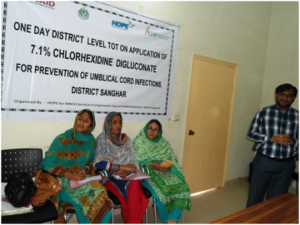
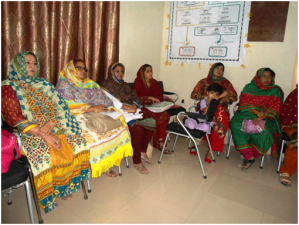
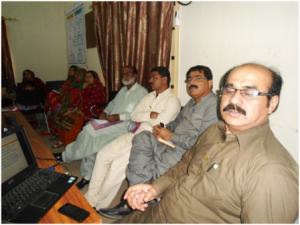
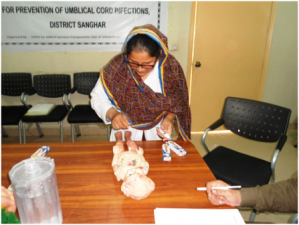
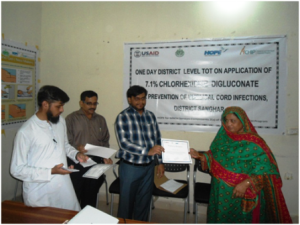
No comments:
Post a Comment